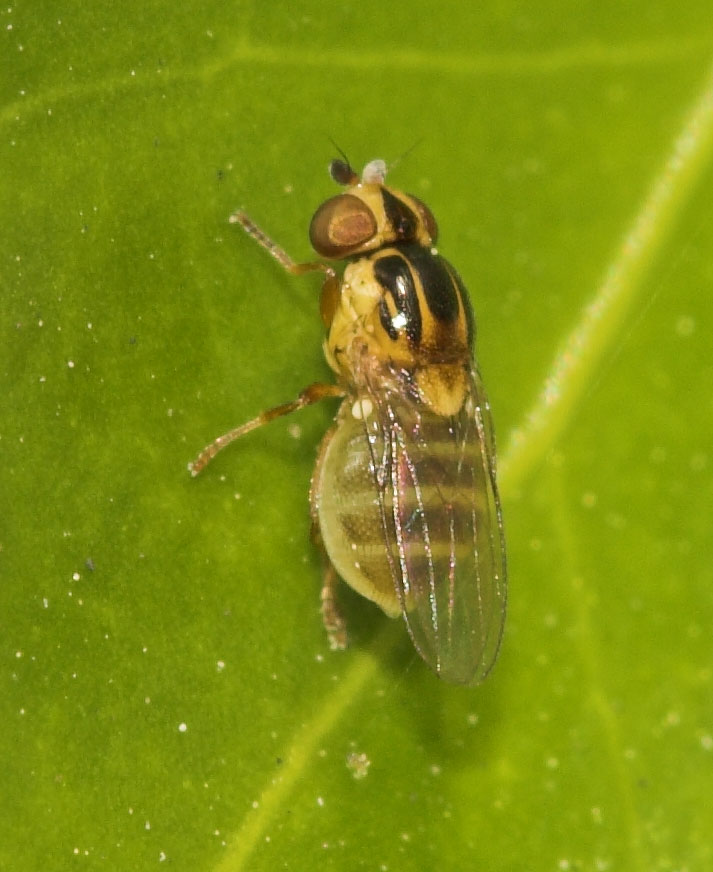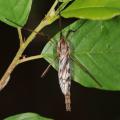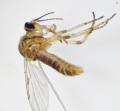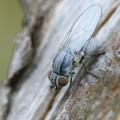Diptera.info :: Identification queries :: Diptera (adults)
Who is here? 1 guest(s)
|
Little yellow fly with stripes
|
|
| pierred |
Posted on 22-04-2006 20:38
|
|
Member Location: Paris (France) Posts: 1440 Joined: 21.04.05 |
Hello, 22nd of April 2006, 2-3 mm. I seem to remember somebody showed us something similar in the past few days or weeks, but I can't find it again : pierred attached the following image:  [88.54Kb] Edited by pierred on 22-04-2006 20:39 Pierre Duhem |
|
|
|
| Nikita Vikhrev |
Posted on 22-04-2006 20:44
|
|
Member Location: Moscow, Russia Posts: 9399 Joined: 24.05.05 |
http://www.diptera.info/forum/viewthread.php?forum_id=5&thread_id=1477
Nikita Vikhrev - Zool Museum of Moscow University |
|
|
|
| Robert Heemskerk |
Posted on 22-04-2006 21:28
|
|
Member Location: Amsterdam, Netherlands Posts: 2082 Joined: 17.10.05 |
Yes, I posted the fly with the item 'Chlorops id' Thank you Nikita for your comment  I struggled with 'apical setas on scutellum aproached together' What are apical setas? or where can I find them? My fly-experience is quite low.. Further I understand that this fly could also be another kind of fly. Not chlorops sp. but also Thaumatomyia sp. Right? On the picture above you can see the scutellum better. This scutellum can lift upwards I understand(?) It are beautiful flies, I didn't know of there existence  greetings, robert Edited by Robert Heemskerk on 22-04-2006 21:29 |
| Nikita Vikhrev |
Posted on 22-04-2006 21:44
|
|
Member Location: Moscow, Russia Posts: 9399 Joined: 24.05.05 |
Thaumatomyia notata is well known fly which can be seen on the window, sometime in mass, especialy in autumn. Now is spring. Few days ago I collected same fly to. Apical setas on scutellum = pair of setas at the end of scutellum. But even with my collected fly under microscop I don't know is this damn apical setas approached enought or not. One needs: 1. collected fly with confirmed ID to compare with or 2. good illustration or 3. good teacher I haven't 1 or 2. So, we have to hope some Expert's help. Nikita Nikita Vikhrev - Zool Museum of Moscow University |
|
|
|
| Robert Heemskerk |
Posted on 22-04-2006 22:00
|
|
Member Location: Amsterdam, Netherlands Posts: 2082 Joined: 17.10.05 |
Yes, I read about swarms of these flies; (http://www.zin.ru/annrep/2000/16.html) ''Enormous swarms of the fly appear usually near high buildings situated separately in vast parks with permanent grass lawns, in buildings of agricultural stations, in astronomic observatories. Some cases are described, when big swarms of the fly appeared as dark cloud near spires of churches or castles in the 19th century. Inhabitants confused it with smoke and sent for fire-brigade''  and: ''the generic name Thaumatomyia means mysterious, enigmatic, amazing fly (in Greek)'' Thanks again for your explanation robert, |
| pierred |
Posted on 23-04-2006 05:30
|
|
Member Location: Paris (France) Posts: 1440 Joined: 21.04.05 |
Robert, Nikita, Thanks for your comments. Chlorops sp. is enough for me, for now. Pierre Duhem |
|
|
|
| Nikita Vikhrev |
Posted on 23-04-2006 08:56
|
|
Member Location: Moscow, Russia Posts: 9399 Joined: 24.05.05 |
Hello Pierre and Robert. I found illustration! In attached image - scutellum of Thaumatomyia. On Pierre's photo we can see apical setas in that very position, so its approached. So Thaumatomyia sp. Nikita Nikita Vikhrev attached the following image:  [2.41Kb] Nikita Vikhrev - Zool Museum of Moscow University |
|
|
|
| pierred |
Posted on 23-04-2006 10:39
|
|
Member Location: Paris (France) Posts: 1440 Joined: 21.04.05 |
Nikita, Thanks. I seem to see it also on Robert's picture. Pierre Duhem |
|
|
|
| Nikita Vikhrev |
Posted on 23-04-2006 14:43
|
|
Member Location: Moscow, Russia Posts: 9399 Joined: 24.05.05 |
I checked my collected fly under microscop. It has all characteristics of Th. notata. Nikita Nikita Vikhrev - Zool Museum of Moscow University |
|
|
|
| Jump to Forum: |















